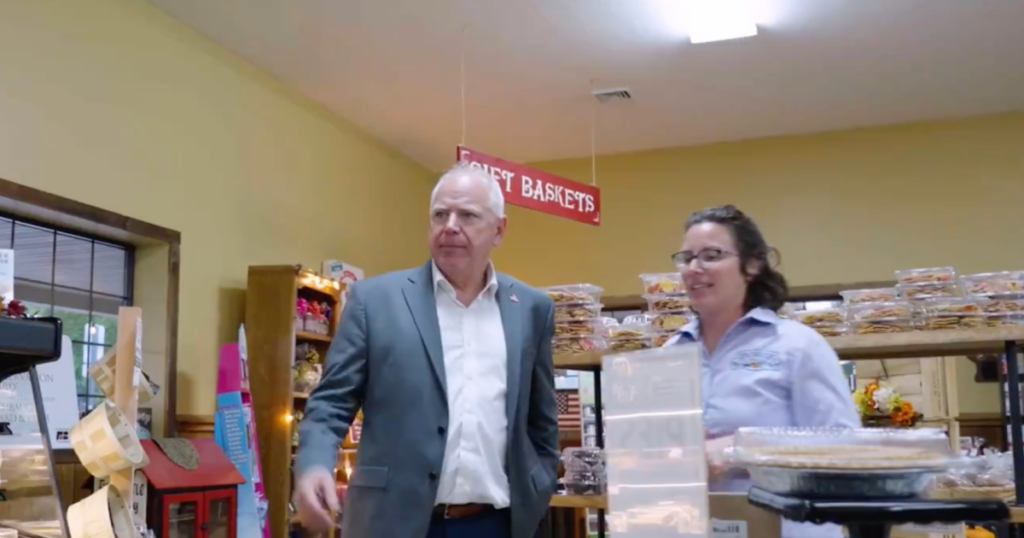In the wake of the devastating Hurricane Helene, which has left more than 227 people dead and hundreds missing across several states, the reactions from political figures have been met with criticism for their apparent disconnect from the crisis. Among those under scrutiny is Minnesota Governor Tim Walz, who recently shared his experience at a local farm market, where he expressed enthusiasm for seasonal treats despite the dire circumstances facing many Americans. His remarks have drawn ire, with observers noting the insensitivity of celebrating the fall harvest while countless lives are in turmoil, struggling to secure essential resources like food, clean water, and shelter in the aftermath of the hurricane.
Walz, identifying himself as a “knucklehead,” showcased a carefree attitude during a visit to a market bustling with food options and reliable electricity. This juxtaposition of his light-hearted adventure against the backdrop of widespread suffering has fueled criticism about political leaders being out of touch with the realities many citizens face during a national crisis. As he contemplated indulging in cinnamon rolls, apples, and even whoppie pies, observers were quick to point out that such trivial concerns seem vastly removed from the urgent needs of hurricane survivors.
In addition to Walz, Vice President Kamala Harris also faced backlash for her comments regarding federal support in response to global crises. On the same day Walz was sharing his market adventures, Harris took to social media to announce a $157 million aid package being sent to war-torn Lebanon, a move that was criticized for its timing. The juxtaposition of Harris’s focus on foreign aid amidst domestic disaster relief needs has raised questions about the priorities of the Harris-Walz ticket during a time when many Americans are looking for leadership and immediate assistance.
The political fallout from such seemingly tone-deaf messaging has sparked discussions about the responsibility of leaders to be in touch with the feelings and needs of their constituents. Critics argue that while addressing international issues is important, it should not come at the expense of failing to address pressing domestic emergencies. The divide between high-profile political decisions and the day-to-day struggles of citizens affected by natural disasters has led to a mistrust among the populace, further exacerbated by the perceived lack of empathy from those in power.
As communities begin their slow recovery from Hurricane Helene, there is a growing expectation for politicians to demonstrate compassion and urgency in their response efforts. The stark contrast between the celebration of seasonal abundance at markets and the sobering reality of disaster recovery serves as a reminder of the complex challenges leaders face in balancing domestic and international priorities. Many advocates and residents are calling for a shift in focus towards helping those affected by the hurricane, ensuring that assistance is provided swiftly and effectively.
Ultimately, the incident highlights the critical need for political leaders to maintain a genuine connection with the lives of everyday citizens, especially during times of crisis. The Harris-Walz ticket’s missteps have opened the door for discussions on accountability and the importance of empathy in governance. As recovery efforts continue, the expectation is that leaders will prioritize addressing the immediate needs of constituents, reaffirming their commitment to serve and protect the well-being of all Americans in the face of adversity.

